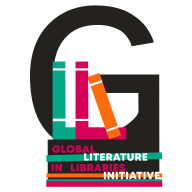Across the first month of 2020, Sophie Baggott is sharing her thirty favourite books by women from across the world. Find out more about her project to read women writers from every country worldwide here.
Longlisted for the Republic of Consciousness Prize 2019 and shortlisted for the EBRD Literature Prize 2019, this is a literary bestselling novel written by Nora Ikstena and translated from the Latvian by Margita Gailitis. It reflects on the effects of Soviet rule on a single individual, and is a mesmerising story – one of my favourite books so far.

a nutshell: Ikstena braids together two very moving accounts of growing up under the Soviet occupation of Latvia – one from a mother & one from her daughter – to portray the crushing weight of societal oppression/terror on families
a line: “We were destined for a somnambulant existence and condemned to call it life”
an image: milk is a recurring symbol – at one point a teacher is rendered speechless by the mother suggesting her daughter’s hatred of milk may stem from the fact that she didn’t breastfeed so as to protect her child from the breast milk of a person who didn’t want to live (elsewhere the mother refers to it as the bitter milk of incomprehension, of extinction)
a thought: the daughter’s realisation that her struggle to connect her mother to life & light in this world would alway end in stalemate hit me hard as a profound comment on the impossibility of banishing another person’s demons
a fact: between the individual stories, this novella gives many insights into existing under “the Russian boot” in 20th-century Latvia, e.g. travel requests often met with netselesoobrazno (non-essential) which regularly prevented people taking trips abroad – even for family members’ funerals
want to read Soviet Milk? visit here

Karen Van Drie. I bought and read the book while in Riga for a few weeks last autumn and found it to give a very interesting view into the difficult and complex Latvian 20th century history from a female – grandmother / mother/ daughter – perspective. Not easy but a wonderful read.😊
LikeLike